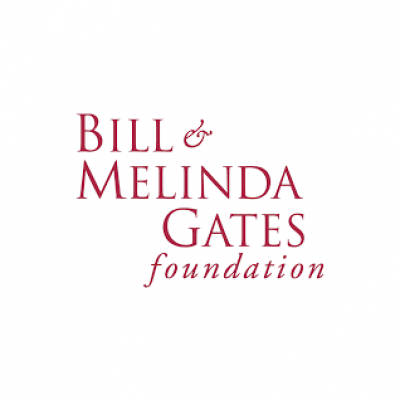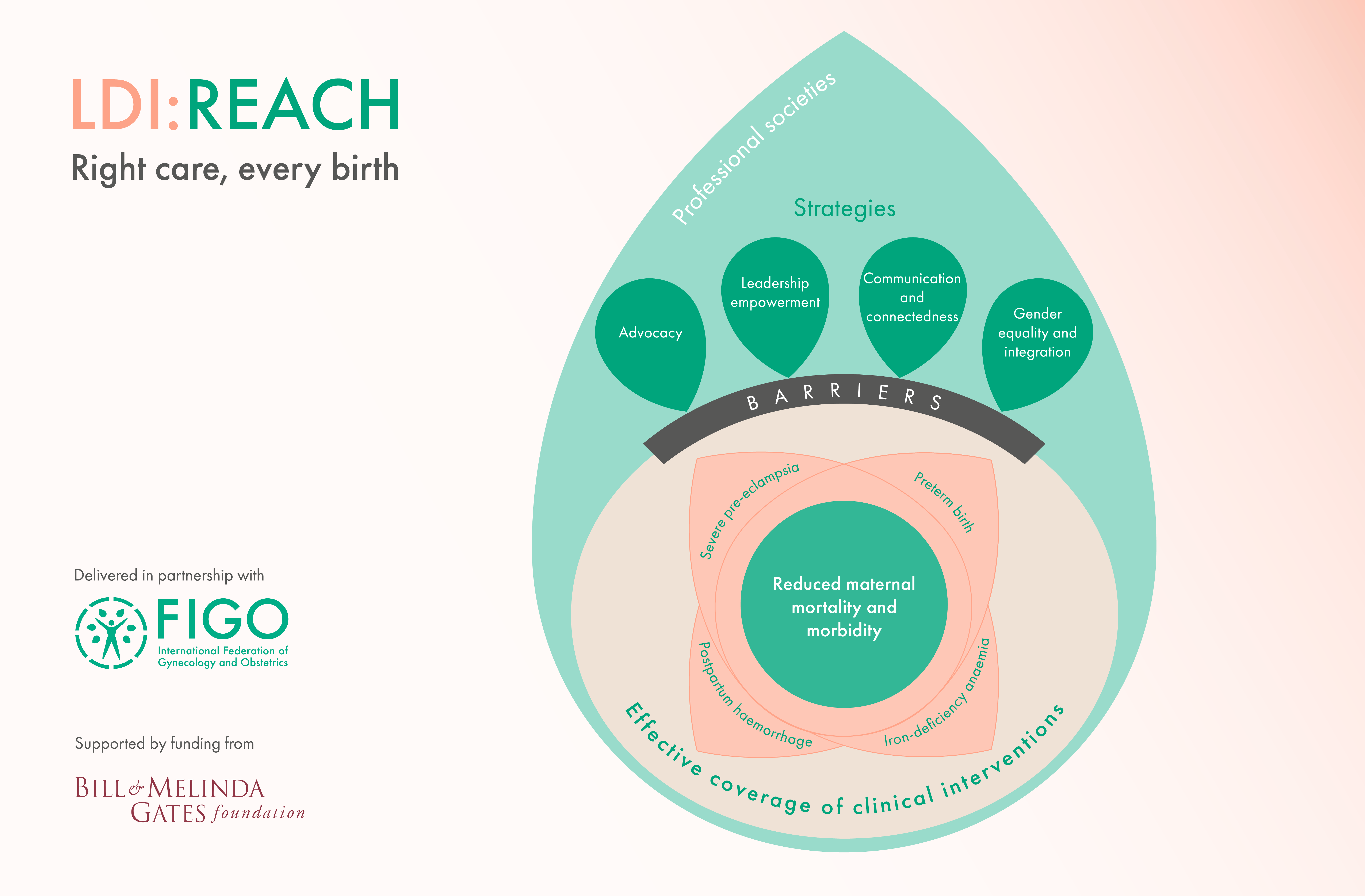Leadership Development Initiative: Removing barriers to effective access and coverage of maternal healthcare (LDI:REACH)
FIGO’s Leadership Development Initiative: Removing barriers to effective access and coverage of maternal healthcare (LDI:REACH) facilitates leadership development, deliver quality improvement in clinical practice and effect change in health care systems to improve maternal and newborn health globally.
The long-term goal is improving maternal and newborn health outcomes through increased coverage of key clinical interventions, rapidly implemented at scale, through the leadership of resilient national societies, all conducted through the lens of gender diversity and equality. This programme of collaborative work aims to deliver quality improvement in clinical practice and ultimately a reduction in adverse maternal and newborn morbidity and mortality.
Programme contacts
Rachel Gooden – Senior Project Manager
Supported by
The activities outlined in this project are supported by funding from The Bill and Melinda Gates Foundation.
Image

|
What we do?
FIGO is collaborating with six National Member Societies to improve maternal and newborn health outcomes by increasing the coverage of key clinical interventions within four specific clinical focus areas and by assisting Member Societies in becoming leading voices for women’s health within their respective countries, playing a pivotal role in influencing practice and policies in their countries.
National Member Societies are critical to improving maternal and newborn health outcomes within their respective country. They actively participate in national legislative, policy guidelines development, providing technical assistance, capacity building, educating communities, conducting implementation research. Many societies draw on not only obstetricians and gynaecologists but include key health professional such as midwives and general practitioners.
The Expert Advisory Group, comprising trustees, volunteers, experts from aligned organisations, supports the FIGO project team by providing technical advice. The LDI:REACH programme team also draws on the expertise from relevant committees within the FIGO Division of Maternal and Newborn Health.
Programme details
LDI:REACH runs from 1 November 2022, to 31 October 31 2025.
Countries involved are Kenya, Bangladesh, India (Uttar Pradesh and Bihar), Pakistan, Nigeria, and Ethiopia.
Our current partners include:
- Ethiopian Society of Obstetricians and Gynecologists (ESOG)
- Kenya Obstetrical and Gynaecological Society (KOGS)
- Federation Obstetrics and Gynaecological Societies of India (FOGSI)
- Society of Gynaecology and Obstetrics of Nigeria (SOGON)
- Society of Obstetricians and Gynecologists of Pakistan (SOGP)
- Obstetrical and Gynaecological Society of Bangladesh (OGSB)
Programme Objectives
The core objectives of the programme are as follows:
- Increase the coverage of key maternal health clinical interventions, in order to reduce maternal mortality
- Identify the barriers to effective coverage of those interventions, nationally and internationally
- Address those barriers as professional societies and frontline health professionals, through a number of approaches including leadership development, gender equity, advocacy and communication
Identification of barriers is informed by a bespoke Barrier Assessment Tool (BAT), which is conducted at national, regional and facility levels every 4-6 months with the aim to assess the specific context for each clinical intervention.

LDI:REACH focuses on the following clinical areas:
- E-MOTIVE for PPH
- Use of magnesium sulphate for severe pre-eclampsia and eclampsia during labour and birth
- Management of iron deficiency anaemia during pregnancy
- Use of antenatal corticosteroids for pre-term birth
Each member society is focusing on two clinical areas, and practice changes are based around adherence to WHO and FIGO guidelines.


